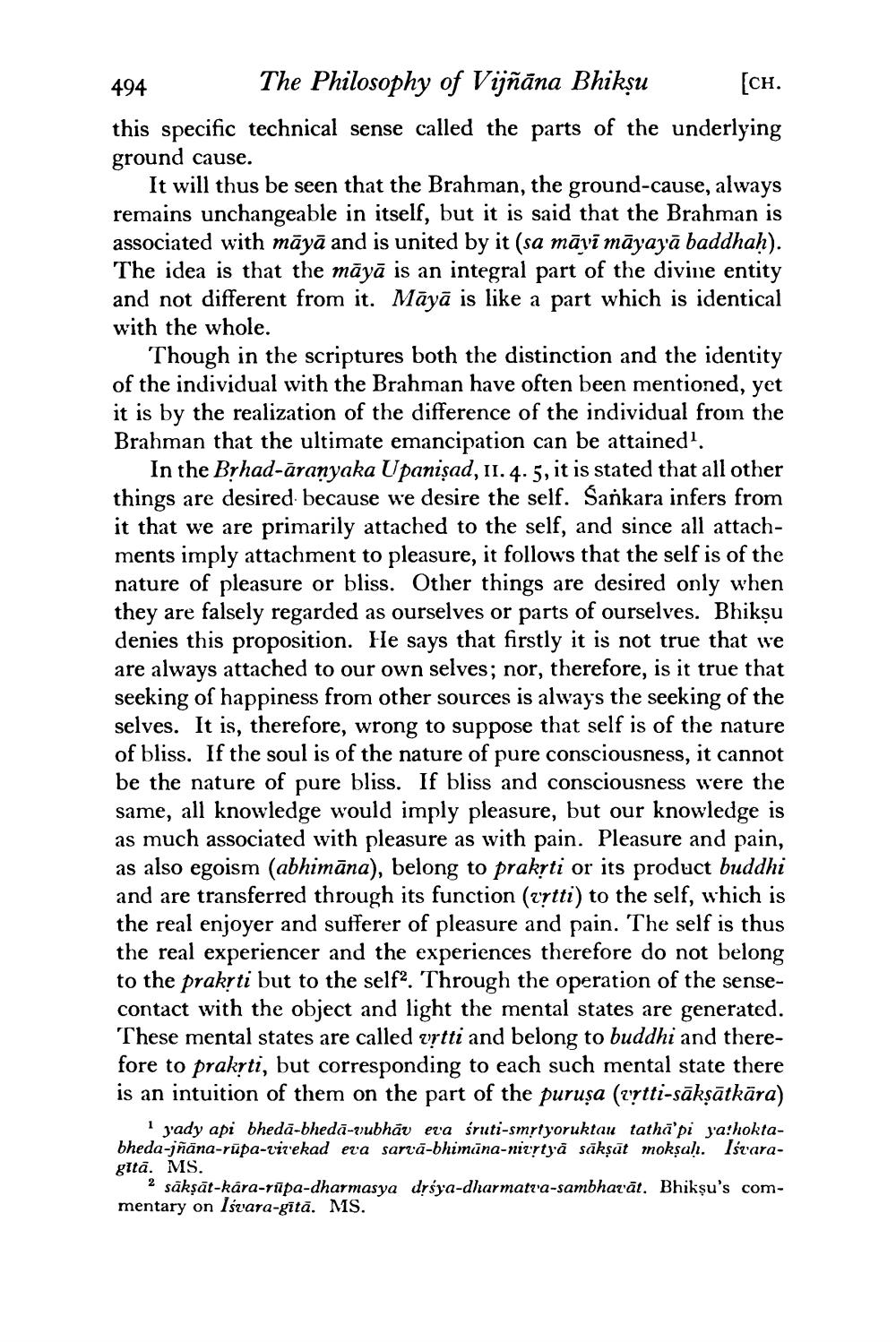________________
494
The Philosophy of Vijñāna Bhikṣu (ch. this specific technical sense called the parts of the underlying ground cause.
It will thus be seen that the Brahman, the ground-cause, always remains unchangeable in itself, but it is said that the Brahman is associated with māyā and is united by it (sa māvī māyayā baddhah). The idea is that the māyā is an integral part of the divine entity and not different from it. Māyā is like a part which is identical with the whole.
Though in the scriptures both the distinction and the identity of the individual with the Brahman have often been mentioned, yet it is by the realization of the difference of the individual froin the Brahman that the ultimate emancipation can be attained.
In the Brhad-āranyaka Upanişad, 11.4.5, it is stated that all other things are desired because we desire the self. Sankara infers from it that we are primarily attached to the self, and since all attachments imply attachment to pleasure, it follows that the self is of the nature of pleasure or bliss. Other things are desired only when they are falsely regarded as ourselves or parts of ourselves. Bhikṣu denies this proposition. He says that firstly it is not true that we are always attached to our own selves; nor, therefore, is it true that seeking of happiness from other sources is always the seeking of the selves. It is, therefore, wrong to suppose that self is of the nature of bliss. If the soul is of the nature of pure consciousness, it cannot be the nature of pure bliss. If bliss and consciousness were the same, all knowledge would imply pleasure, but our knowledge is as much associated with pleasure as with pain. Pleasure and pain, as also egoism (abhimāna), belong to prakrti or its product buddhi and are transferred through its function (urtti) to the self, which is the real enjoyer and sufferer of pleasure and pain. The self is thus the real experiencer and the experiences therefore do not belong to the prakrti but to the self?. Through the operation of the sensecontact with the object and light the mental states are generated. These mental states are called vrtti and belong to buddhi and therefore to prakrti, but corresponding to each such mental state there is an intuition of them on the part of the puruşa (Prtti-sākṣātkāra)
yady api bhedā-bhedā-vubhāv eva śruti-smrtyoruktau tathā'pi ya:hoktabheda-jñāna-rupa-ritekad era sarva-bhimūna-nitrty'à saksāt mokşah. Istaragitā. MS.
2 sākṣāt-kára-rūpa-dharmasya drsya-dharmatt'a-sambharāt. Bhikṣu's commentary on Isvara-gītā. MS.




